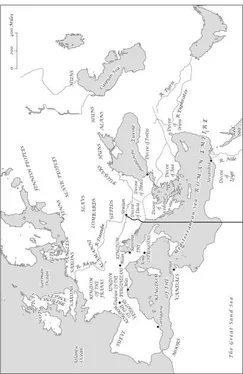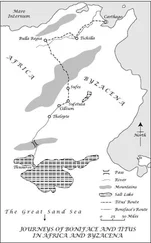Ross Laidlaw - Justinian
Здесь есть возможность читать онлайн «Ross Laidlaw - Justinian» весь текст электронной книги совершенно бесплатно (целиком полную версию без сокращений). В некоторых случаях можно слушать аудио, скачать через торрент в формате fb2 и присутствует краткое содержание. Жанр: Исторические приключения, на английском языке. Описание произведения, (предисловие) а так же отзывы посетителей доступны на портале библиотеки ЛибКат.
- Название:Justinian
- Автор:
- Жанр:
- Год:неизвестен
- ISBN:нет данных
- Рейтинг книги:4 / 5. Голосов: 1
-
Избранное:Добавить в избранное
- Отзывы:
-
Ваша оценка:
- 80
- 1
- 2
- 3
- 4
- 5
Justinian: краткое содержание, описание и аннотация
Предлагаем к чтению аннотацию, описание, краткое содержание или предисловие (зависит от того, что написал сам автор книги «Justinian»). Если вы не нашли необходимую информацию о книге — напишите в комментариях, мы постараемся отыскать её.
Justinian — читать онлайн бесплатно полную книгу (весь текст) целиком
Ниже представлен текст книги, разбитый по страницам. Система сохранения места последней прочитанной страницы, позволяет с удобством читать онлайн бесплатно книгу «Justinian», без необходимости каждый раз заново искать на чём Вы остановились. Поставьте закладку, и сможете в любой момент перейти на страницу, на которой закончили чтение.
Интервал:
Закладка:
Ross Laidlaw
Justinian
HISTORICAL NOTE
In AD 468, organized by both the Eastern and the Western Roman Empires, a mighty seaborne expedition — the largest the Ancient World had ever seen, set sail from Constantinople. Its aim: to expel from Africa the Vandals, a ferocious and destructive German tribe who had occupied the Western diocese some forty years before. If successful, the enterprise had the potential to save the Western Empire, crumbling under the onslaught of other German peoples — Franks, Visigoths, Suevi, Alamanni, et al. Prior to the Vandal invasion, Africa had been the West’s richest and most productive possession. Liberated, she would have the potential again to provide revenue sufficient to revive the West’s economy and to replenish her decimated armies, enabling them to drive out, or at least contain, the barbarian invaders.
In the event however, the expedition was a total disaster. Pinned by contrary winds against a lee shore, the Roman fleet was scattered by Vandal fireships, its vessels doomed to burn, founder on rocks, or be picked off by Vandal boarding parties who had the wind in their favour. With the funds of both empires now exhausted, no further rescue attempts could be forthcoming. Immediately grasping this fact, the barbarians proceeded swiftly to overrun the remaining Western enclaves. In only eight short years the West went from something to nothing; in 476 the last Western emperor was deposed, and the empire he nominally ruled came to an end. In contrast, the Eastern Empire — wealthy, stable, comparatively untroubled by barbarians (it was only threatened by them on its Lower Danube frontier, and had moreover become rather adept at passing on to the West any who invaded; whereas the West had the whole of the Rhine/Upper and Middle Danube border to defend), was destined to continue for many more centuries to come. At the time of West Rome’s fall, the only serious threat to East Rome was Persia, with whom the Romans had been at war off and on — forever, it must have sometimes seemed. Persia however — potentially a far more dangerous enemy than any German confederation, was a civilized power that on the whole kept its treaties.
In or about the year the doomed armada sailed, a young Goth — let’s call him Roderic (for his true given name has not come down to us), a peasant from the East Roman province of Dardania,* set out with two companions on the high road for Constantinople, capital of the East Roman Empire. In the words of Gibbon, ‘the three youths. . were soon enrolled, for their strength and stature, among the guards of the emperor Leo. Under the two succeeding reigns [of the emperors Zeno and Anastasius], the fortunate peasant emerged to wealth and honours; and his. . long and laudable service in the Isaurian and Persian wars. . might warrant the military promotion which. . he gradually obtained’. All this despite being German — a race both feared and hated by the Romans.
In 496, when our story begins, Roderic is forty-six years of age, a middle-ranking general serving under the Magister Militum per Orientem — the Commander-in-Chief of the Army of the East. He is adored by his troops for his generosity, fairness, genuine concern for their welfare, and success against the enemy. He remains however at base a simple peasant (though he has learned to read, literacy being a prerequisite for any officer in the East Roman army), unfitted for any role outside a military command. In that year of 496, the Western Empire has been defunct these twenty years, its former territories now ruled by barbarian kings: Gaul and Spain have been taken over by Franks, Visigoths, Suevi, Burgundians, and Alamanni; Africa has long been under Vandal sway; Italy is in the hands of the Ostrogoths under their powerful and charismatic king, Theoderic — nominally the vicegerent of Anastasius, the aged Eastern emperor, between whose realm and Persia an uneasy truce prevails.
Meanwhile, back in Roderic’s homeland of Dardania, his sister Bigleniza cherishes hopes that her brother will be able to advance her gifted and ambitious son, Uprauda. .
* Roughly equivalent to present day Bulgaria. See Appendix I.
PART I
AD 482-500

The Roman Empire and the Barbarian kingdoms at Justinian’s accession, AD 527
PROLOGUE
‘Elephants, sir!’ gasped the scout, reining in his lathered mount before the general. ‘Scores of the brutes. And they’ve got cataphracts as well — hundreds of them, in addition to vast contingents of infantry.’
‘Calm down, lad,’ said Roderic gently. ‘Nothing to panic about; Romans’ll see off elephants and armoured cavalry every time. Now — just the facts please. Location? Line of march? Numbers?’
Looking slightly shamefaced, the scout dismounted and stood to attention, helmet tucked under arm. ‘The Persians are several miles this side of the Euphrates, sir, heading our way,’ he reported in more sober tones. ‘About twenty thousand altogether, I’d say.’
‘Thank you, soldier; you did well. Report to the cook-house and ask for a hot meal — my orders.’ Roderic grinned and clapped the young man on the shoulder. ‘But first see that your horse gets a rub-down and feed. Dismiss.’
‘Of course, sir. Thank you, sir.’ Saluting smartly, the scout turned and walked away, leading his horse; he now looked and sounded relaxed and reassured, in contrast to his earlier state of excited apprehension.
Leaving the agora — the town square — Roderic returned to his quarters in the citadel of Palmyra, the strategically important frontier city on the interface between the empires of East Rome and Persia. He’d done his best, he reflected, to prevent that young scout from spreading alarm and despondency among his fellow soldiers. But in truth, he acknowledged to himself, the situation looked bad. At present, all the imperial field armies had been moved north, engaged in suppressing yet another insurrection by the Isaurians — a wild tribal people inhabiting a mountainous region of Anatolia. Roderic had been left with a scratch force of limitanei — second-rate frontier troops, to guard the eastern border, pending the absence in the north of his superior, the Magister Militum per Orientem . In normal circumstances, this role would have amounted to no more than a routine policing assignment; officially, Rome and Persia were at peace. But the reigning King of Kings, Kavad, was known to be under the influence of his top general, Tamshapur, a maverick commander with dangerously expansionist ideas. Tamshapur was suspected of harbouring dreams of seizing East Rome’s Diocese of Oriens, whose territory, back in the days before Alexander, had once formed part of the empire of the Peacock Throne. The scout’s report suggested that these suspicions were well founded: that Tamshapur, taking advantage of the fact that Rome’s eastern frontier was for the time being virtually undefended, had decided that here was a golden opportunity to launch an attack and make his dreams reality.
Pacing the floor of his spartanly furnished tablinum or study, now converted to a command centre, Roderic tried to formulate a plan to counter this appalling threat. He had two choices: to remain inside Palmyra, or engage the enemy. Should he decide on the former, he could probably hold out, for a time anyway, against any siege that Tamshapur (for it was almost certainly he who commanded the approaching army) might decide to mount. Palmyra’s walls were strong; but even if they fell, the garrison could then retreat to the virtually impregnable citadel to await eventual relief by a Roman field army. The trouble with that choice was that it would allow Tamshapur to take over the diocese unchallenged, leaving Palmyra isolated within enemy-occupied territory — territory which Rome might, quite conceivably, find itself unable to recover. The other alternative was to take on the Persians — a David and Goliath stance if ever there was, and one that must surely end in annihilation for his tiny force, Roderic reflected gloomily. Clearly, in this situation two heads would be better than one. He would pick the brains of Victor, his trusty vicarius or second-in-command; his opinions were always worth listening to.
Читать дальшеИнтервал:
Закладка:
Похожие книги на «Justinian»
Представляем Вашему вниманию похожие книги на «Justinian» списком для выбора. Мы отобрали схожую по названию и смыслу литературу в надежде предоставить читателям больше вариантов отыскать новые, интересные, ещё непрочитанные произведения.
Обсуждение, отзывы о книге «Justinian» и просто собственные мнения читателей. Оставьте ваши комментарии, напишите, что Вы думаете о произведении, его смысле или главных героях. Укажите что конкретно понравилось, а что нет, и почему Вы так считаете.












